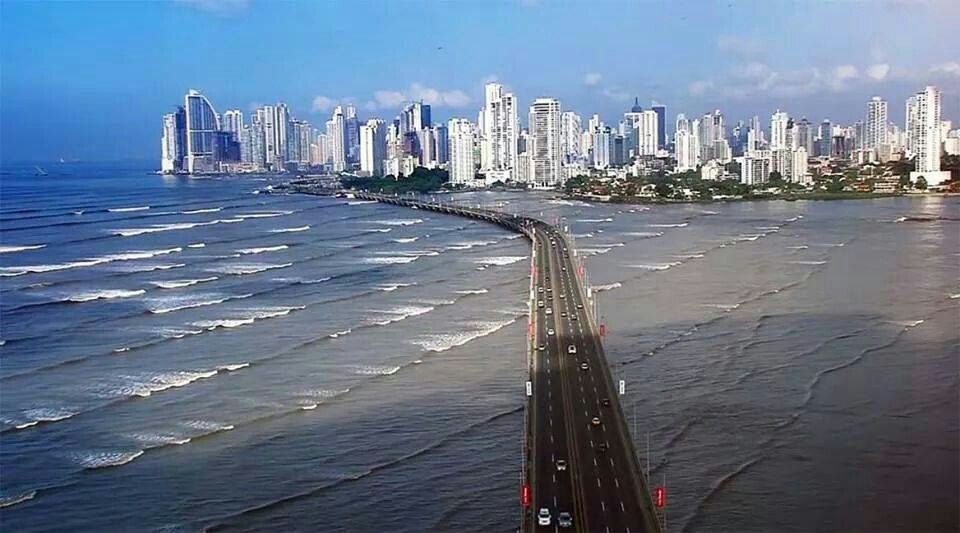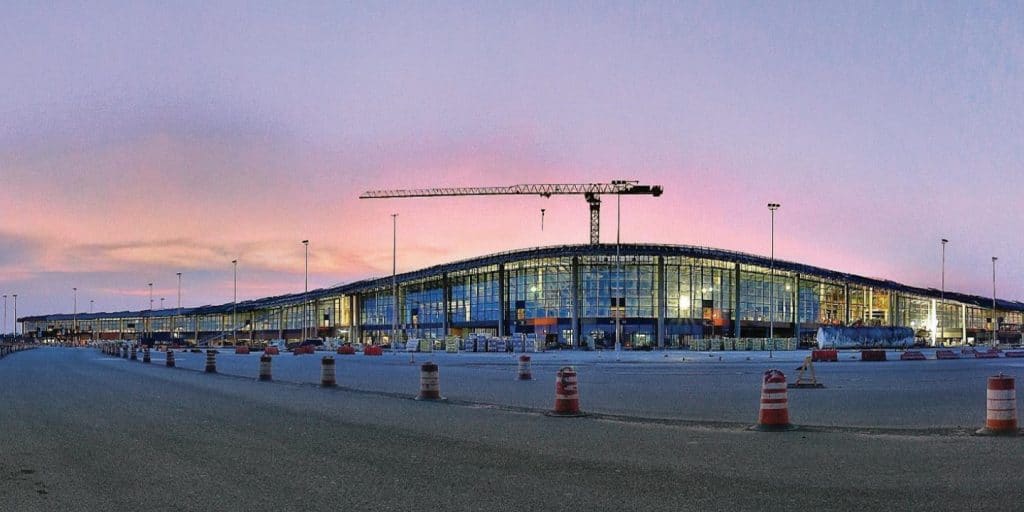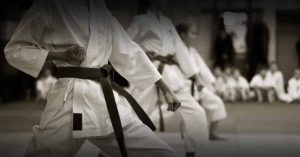#Culture
Day of the Dogs, Part 9: All We Have To Do
The driver whistled. “Waow. You some big politico? So watchu gonna do about the foreigners snatchin’ our jobs? The Chinos?”
Published

See the Story Index for Wael Abdelgawad’s other stories.
This is chapter 6 in a multi-chapter novella. Chapters: Chapter 1 | Chapter 2 | Chapter 3 | Chapter 4 | Chapter 5 | Chapter 6 | Chapter 7 | Chapter 8
“Policia Nacional!” – Omar
Broken Window

Keep supporting MuslimMatters for the sake of Allah
Alhamdulillah, we're at over 850 supporters. Help us get to 900 supporters this month. All it takes is a small gift from a reader like you to keep us going, for just $2 / month.
The Prophet (SAW) has taught us the best of deeds are those that done consistently, even if they are small. Click here to support MuslimMatters with a monthly donation of $2 per month. Set it and collect blessings from Allah (swt) for the khayr you're supporting without thinking about it.
Tocumen International Airport
Back in Panama, pulling his wheeled suitcase along behind him, Omar walked out to the long-term parking lot at Tocumen airport. It was a hair past noon, and the sun poured forth its fire as if the earth were a morsel of meat it wanted to cook for lunch. Knowing the weather in Panama, Omar had changed his clothes in advance in the airport bathroom, putting away the linen suit and slipping on a pair of knee-length basketball shorts and a t-shirt. He was glad he had. After the chilly skies of Bogota, being back in Panama was like stepping into a sauna.
When he came to his car, he found the driver’s side window shattered. He shook his head in disgust. Why would anyone break into his car? It was a five year old silver Toyota sedan with no frills. It didn’t even have a CD player, just a basic AM/FM radio. He could have afforded better, but he drove this old beater for exactly this reason: it didn’t look worth breaking into.
Searching the car, he found nothing missing. There hadn’t been anything worth stealing anyway. Just the manual in the glove box, a little LED flashlight, a pack of cinnamon chewing gum, and some napkins. Oh, wait – they’d taken the Quran CDs. Arabic recitation with Spanish translation. Maybe the thieves would listen and be guided.
When he inserted the key and turned it, he got nothing. Not even a click. Opening the hood, he discovered the reason: the thieves had stolen his car battery. So that was what they’d been after. Now he was angry. Where was airport security?
Drumming his fingers on the steering wheel, he considered who to call. He needed someone to bring him a battery. His wife didn’t drive. Fuad didn’t drive either, because he never knew when he might have an epileptic attack.
Fuad’s crazy wife Ivana did drive, but Omar didn’t want to deal with her. If Fuad somehow convinced her to come out here, she would either want to be paid, or would expect Omar to take her and Fuad to the most expensive restaurant in Panama. Ten times! Omar laughed at the thought.
He could call Nadia Muhammad, his old friend from IIAP. She was married and sometimes came to visit with her husband and two kids. She was a goofball, always telling jokes and making his son Nur laugh. But even though they were just buddies, and his wife thought nothing of it, he didn’t want to push the boundaries of trust by spending half a day driving all around Panama city with her.
It Burns!
Deciding that there was nothing left to steal, and that it wouldn’t hurt to leave the car alone for a while, he trudged back to the taxi stand in front of the terminal. Ignoring the touts who snatched at his sleeves, desperate to put him in a limo or town car, he found a 60ish, balding taxi driver with forearms like German sausages. The man sat disconsolately in his cab, filling out a crossword puzzle. The two of them negotiated a price of $40 for the whole business, and took off.
As they headed into the city with the windows open and hot air whipping through the car, Omar reclined his head against the seat and closed his eyes.
Apparently not noticing or caring that Omar was trying to rest, the driver called out, raising his voice to be heard. “Oye, jefe. You some kinda tuna fat foreigner?”
“I’m Panamanian.” Omar opened his eyes and studied the road, and was dismayed to see that the driver had taken the slow midtown route. Avenida Domingo Diaz was an interminable road lined with auto shops, plant nurseries and love motels – known as pushbuttons in Panama, because all you had to do was drive in and push a button. You never had to see any clerk or staff face to face. “Hey, why did you go this way? I would have paid the tolls on the Sur.”
“Well I din’ know that, no?” The man’s sped-up slang Spanish marked him as having been raised in Colon. Omar could barely understand him. “Just because you a tuna fat Colombian. You might be a biter. You ahuevao foreigners is welcome if you bring some flus. Otherwise we don’ need you.”
Ignoring the fact that the man had just called him stupid – he’d understood that much – Omar, repeated, “I’m Panamanian.”
“Then where the president live?”
“Palacio de Las Garzas. I’ve been there.”
The driver whistled. “Waow. You some big politico? So watchu gonna do about the foreigners snatchin’ our jobs? The Chinos?”
There were a lot of Chinese in Panama, true, but they didn’t take jobs. Just the opposite. They opened stores, restaurants, internet cafes and electronic shops, and employed Panamanians. Omar explained this.
“Then the mascabola Venezuelans! Ñangara Comunistas!” The driver hawked and spit on the floor of his own car. “They spray the word taxi onna side of a car and steal my fares, don’ even have licenses.” He pounded the dash with a meaty fist. “It burns!”
“I see how that’s bad for business, but they’re our neighbors. We have-” Omar stopped talking as the driver abruptly swerved across two lanes of traffic and pulled up beside a love motel called Lady Finger.
“Get out!” the driver demanded. “Ain’t drivin’ no mascabola Communist-lover. And I ain’t votin’ for you!”
Omar pursed his lips. It would be hard to find another taxi out here. He considered offering the driver more money, but the guy was a nasty piece of work. As much as the man wanted Omar out of his cab, Omar wanted to be done with him too.
He collected his luggage and paid the driver a quarter of the normal fare, which under the circumstances he felt was generous. The driver cursed at him and peeled out with a squeal of burning rubber.
Allah blessed him. Omar had only begun to contemplate his options when another taxi pulled up to the Lady Finger. A 60ish man in a business suit and a young woman in a skin-tight dress headed into the pushbutton. Omar called out to the driver and half-ran, pulling his bag behind him. A minute later he was on his way – again – with a driver who kept the windows rolled up, the AC on and a Cuban jazz CD playing softly. Alhamdulillah.
Do the Right Thing
Three hours later, with a new battery in his car, Omar navigated his way out of the airport parking lot. He noticed several other cars with shattered windows. Useless airport security officers walked around making notes, and two cars were being lifted onto tow trucks.
He headed home along the Corredor Sur, the express toll highway that led along the Pacific waterfront. The area bordering the highway had once been an expanse of impenetrable mangrove swamps, but now it was Costa del Este, the most expensive seaside neighborhood in all of Panama. Two-hundred meter skyscrapers glittered in the tropical sunshine, their glass sides reflecting sky and sea, while construction cranes marked the sites of future towers.
These million dollar apartments were occupied by business people, wealthy expatriates and even crime cartel bosses, mostly hailing from neighboring (and less stable) countries like Venezuela, Colombia, and Ecuador. And, of course, by Fuad, who – pushed by his Cuban beauty queen – had purchased an apartment he really could not afford.
The mangroves that had been drained and filled to make Costa del Este possible had been one of the richest wetland habitats in Panama, home to dozens of endemic species. Such was the way of his country. No one valued nature, nor even old things of human make. It was all about what was new and sleek.
At least people like Naris Muhammad were out there fighting to protect what was left. Naris, the serious-minded member of the Muhammad triplets, was one of the most prominent environmental activists in Panama.
He exited the freeway into the leafy district of San Francisco. It was an upper middle class neighborhood with tree-lined streets, mostly consisting of gated homes, all bordering Parque Omar, the largest urban park in Panama.
Passing by Parque Omar, he eyed the spot where, last year, he’d intervened to stop a man from beating a woman. He’d been out for a morning jog and had seen a tall, thin man with hollow eyes punching a young woman in the face.
For a good portion of his childhood he had been the one beaten while the person who should have protected him stood by helplessly. He’d always promised himself that he would not be that impotent bystander, allowing someone to be abused before his eyes.
So when he saw the man punching the woman, he instantly ran forward, wrapped the man’s neck from behind and pulled him off the woman. The woman, instead of thanking him, screamed, “Leave my boyfriend alone!” She picked up a broken tree branch and struck Omar on the head, and the pair of them dashed off. Omar went home with his scalp bleeding, expecting a tongue lashing from his wife. But she cleaned the wound, kissed him and made him one of his favorite foods: an apam balik pancake filled with banana slices, sesame and sugar.
He returned his eyes to the road. He couldn’t be responsible for the choices people made. But he could do the right thing.
As he approached a large, sky-blue home fronted by a high brick wall and a steel gate, he hit a remote control and the gate slid open. The house had a circular front driveway that curved around a bubbling Islamic style fountain shaped like an eight-pointed star, covered in green tiles. The crisp water sparkled as it poured out of an upper bowl and into the larger basin below.
Nur liked to play in this pool, while Omar’s wife enjoyed sitting beside it after sunset, listening to the Quran on a little cassette player. Omar had offered to buy her a portable CD player, but she said she couldn’t tell one side of a CD from the other.
Tall trees flanked the front yard, with a pair of mango trees anchoring east and west. Around them grew passion fruit and guava trees, and berry bushes. Nur often came out here with his mother and ate the berries straight from the bushes, until his cheeks and chin were red from the juices.
A single, towering eucalyptus stood at the front, near the wall. Omar loved that tree for the shade it cast on the house and the sound the wind made rustling through its leaves, but it would have to be cut down, he knew. Eucalyptus trees, which were not native to Panama, had shallow, spreading root systems. As a result they were prone to falling, especially in the dry season when strong winds blew for months. If the tree fell on the house it would do some serious damage.
Something For Everyone
When he opened the door, Nur came running. Omar dropped to one knee to catch the boy. He was a handsome tyke, with sturdy limbs, a strong nose and square face. His eyes were dark and his black hair was straight, like his mother’s. Omar’s love for him was a deep river that would never run dry.
He found his wife in the kitchen standing at the stove, garnishing a red snapper for the oven. The split AC in the corner hummed, its cool air circulating the scents of lemon and parsley. The space was large and comfortable, with a cooking island in the center, and teak cabinetry all around. A matching rustic teak table occupied one side, beside a low, molded concrete bench that extruded from the wall and was covered with cushions. The family spent a lot of time here.
His heart surged at seeing his wife again. Her face was dewed with perspiration from the heat of the stove. Even so, she looked beautiful, with a slender, strong form, and her long black hair tied back in a ponytail. He went to her and she turned to embrace him, saying, “Careful of the stove.”
Putting his arms around her, he could feel the muscles in her shoulders and arms. The two of them ran five kilometers every morning in Parque Omar, and two evenings a week he taught her karate in an upstairs bedroom they’d turned into a training studio.

He reached down to scratch Berlina’s head. Her tail thumped happily against the kitchen cabinet. Nur grabbed his other hand. “What did you bring me, Papá?”
Standing in the middle of the family mob, Omar laughed. “I have something for everyone, okay?”
They sat at the kitchen table and Omar parceled out the gifts: for his wife, a pair of silver earrings shaped like crescent moons and fashioned in the uniquely Colombian “momposina” style, with finely woven silver threads. For Nur, a set of coloring pencils with a small leather carrying case.
“What about Berlina?” Nur wanted to know.
In answer, Omar stood, grabbed the plastic jar of beef jerky sticks from the top of the refrigerator, and tossed one to the dog. Berlina caught it in mid-air, settled down and went to work, her wagging tail brushing the floor.
Drawings
Later that evening Omar sat at the kitchen table with his son, watching the boy draw. He could hear the shower running upstairs.
Papers were scattered across the table, covered with drawings of ocean waves, leaping dolphins, a squid brandishing a scepter, and a mermaid wearing a crown. Nur had always been fascinated by the ocean and all its creatures.
Nur held up a picture of a tsunami arching over a small town. He’d even drawn tiny cars on the roads and stick figures of people. “Do you like it, Papá?”
Omar raised his eyebrows. “It’s drawn very well.” He leaned close to his son’s ear. “But let’s not tell Mama that story. We don’t want her to be sad for the people.” Nur’s mother could not see the drawings, so normally Nur would describe them to her in detail, telling the drawing’s story.
Nodding, Nur tucked the sketch beneath a pile of others as his mother came down the steps, tying a towel around her hair. Omar was always amazed at how confidently she moved. A stranger would never guess she was blind, at least not here inside the house, where everything was laid out precisely in its place. Though her vision was not 100% gone. She could sometimes make out broad outlines and colors.
“Sad for what people?” she asked.
“Nothing, just drawings.”
Omar’s wife sat on his lap, resting an arm around his shoulders. She ran a hand through his hair, playing with the curls, taking care to stay away from his mangled ear, as he was sensitive about that. He kissed her on the cheek, happy to be home with the loveliest woman he knew. He was blessed, alhamdulillah.
A Scarcity of Friends
“I missed you,” his wife said. “But I’m glad you found your friend Hani. You don’t have many friends.”
It was true. He had Mahmood, Fuad, and Nadia. That was about it. Nadia’s sister Naris could have been a friend if she weren’t so engrossed in her work as an environmental activist. As for Nabila, she’d moved to Los Angeles to capitalize on her Youtube stardom, and ended up becoming a documentary filmmaker.
Was this scarcity of friends the reason he’d been so excited to see Hani again? And why he had overlooked the brother’s disconcerting negativity?
“What’s his wife’s name, by the way?”
“He never told me. She works as a house cleaner.”
“Do you think it’s wise to invest with him? He sounds unstable.”
Omar pulled her hand out of his hair. It was too close to his ear, and was making him nervous. “Does he?”
“The way you describe him.”
“Hmm.”
She ran a hand over his face – her way of reading his expression. “You’ve already decided to give him the money, haven’t you?”
“I guess.”
“Then why make him write a business plan?”
“For his own benefit. To help him succeed.”
“I think you just wanted a reason to see him again.”
As a reply, Omar pulled his wife close and kissed the side of her head. Her black hair smelled of the papaya shampoo she favored. She knew him too well, and never failed to let him know it.
He watched his son working on a new drawing of a squadron of flying fish. Each fish wore a beret and had a cigar in its mouth. As the boy drew, he chewed on his upper lip.
Nur was an intense child, but was he happy? Omar thought back to his own early childhood, training in martial arts with his father, watching football games, attending the masjid for Jumah prayer; and going on hikes with his mother, or visiting that amazing ice cream shop on Avenida Central that sold a giant scoop of mango sorbet for a quarter. They had been poor, but Omar had been happy because he was loved by his parents, and what more did a child need?
That’s all we have to do, he thought. Love him. He reached out and stroked the back of Nur’s neck. The boy did not even look up. “All we have to do,” Omar said out loud.
“Do what?” his wife asked.
“All we have to do is love each other.”
His wife settled into him, resting her back against his chest. “Yes. That’s all we have to do.”
Put Your Hand Down

“Put your hand down, Tabina. It wasn’t a question. Fix your stances.” His own son Nur was leaning too far forward in his horse stance, and Omar showed him by giving him a slight push, which nearly toppled him. Technically Nur was not old enough for this class; it was for kids aged six to twelve, but being the instructor’s son had privileges. Not that Omar went easy on the boy. Just the opposite. He demanded much from him.
Omar loved these kids at the Centro Islamico, which everyone called the Centro. He volunteered twice a week, teaching this class and another for teens.
“There are three things you must do,” he went on, “if you want a black belt. One, come to class. Two, practice at home. Three, don’t quit. If you do these things, week after week, month after month, year after year, I guarantee you will get your black belt eventually, inshaAllah.”
He cast a glance at the clock on the wall. It had been a month since his return from Bogotá. Hani and his wife were supposed to arrive today. In three hours, actually.
“Line up,” he ordered the class. “Respect Allah, your parents and yourselves.” With a command of, “Sensei ni rei!” he bowed the class out. “Domo arigato gozaimusu,” all the kids intoned in Japanese.
His own wife was teaching a Quran memorization class in one of the upstairs rooms. He called Nur over and kneeled to give the boy a hug. “Run upstairs and tell Mamá we have to go.”
Refugees
As the three of them exited into the audacious Panama sun, unmitigated by any trace of cloud, they saw a scene unfolding in the empty lot across the street. A group of refugees – Venezeuelans no doubt – were camped in a large weed-ridden field, which was muddy and spotted with litter.
One family hunkered in the shade of a patched-up tent, while a thin woman with frizzy hair in a ponytail sat beneath two pieces of corrugated metal that had been leaned against each other and covered first in cardboard, and then with a tarpaulin. Her two small children kicked a deflated soccer ball in front of the shelter. A toothless old man with a cane sat on a plastic milk crate, out in the open, with only a gray baseball cap to shield his face from the sun. There were about a dozen people altogether, mostly women and children. They were a doleful, dejected group. It broke Omar’s heart to see such scenes, but Venezuelan refugees were everywhere in Panama these days.
Now, however, a group of young Panamanian men and women – in their late teens or early twenties, perhaps – had pulled up to the lot in two tricked-out Japanese cars. They began shouting at the refugees, telling them to go home, and calling them leeches and scum. The well dressed youths, consisting of five boys and two girls, exited their cars and began throwing stones at the refugees.
Omar had witnessed scenes like this before. With over one hundred thousand Venezuelans in Panama, resentment was rising among those who chose to scapegoat the refugees for all of Panama’s problems – like the taxi driver.
The little boys who’d been kicking the soccer ball ran to their mother in the lean-to. The old man with the cane yelled at the youths, who shouted insults in return.
“Papá,” Nur said in alarm, “why are they doing that?”
“What?” Omar’s wife wanted to know. “What’s going on?”
Omar gave his wife’s shoulder a squeeze. “Kids misbehaving. Go back inside the Centro with Nur.” She did not have Berlina with her, as dogs were not welcome in the Centro, not even guide dogs. It was a bad policy, but one that Omar had not succeeded in changing. But she had her cane, and of course she had Nur.
He strode across the street, mindful that if these youths chose to fight he’d be badly outnumbered. An idea came to him. Taking out his wallet, he opened it and held it above his head. “Stop!” he commanded loudly. “Policia Nacional! You’re all under arrest.” He did not have a badge of course, but the kids were several meters away and probably would not notice.
Indeed, the youths scattered, dashing back to their cars, jumping in and peeling out, tires squealing.
Omar strode across the muddy field to the refugees, who all looked frightened. “Easy,” he told them, making a calming motion with his hand. “Are you okay?”
A woman in her forties, her brown face weatherbeaten and lined, stepped forward. “It’s nothing new,” she replied bitterly. “But thank you anyway.”
Omar looked the group over. He wanted to do something, say something, but what? In the end all he said was, “Do you have enough food?”
“No,” the woman replied bluntly.
Omar’s wallet was still in his hand. He took out $60, which was all the cash he had on hand, and held it out to the woman.
Her eyes flicked to the money, then to Omar’s face. Her mouth was a grim line. “We did not ask for anything.”
“I know. But you’re my neighbors. Maybe Panama will be in trouble one day, then I’ll come to your country and need your help.”
The woman’s mouth quirked upwards into a smile. “I don’t think so. You are rich, and you don’t know it.” But she took the money.
“What’s your name?”
The woman’s face instantly registered suspicion. “Why are you asking me that?”
Omar made an apologetic gesture. “Never mind. “I’ll come back next Saturday with some food and things if you don’t mind.”
The woman raised her eyebrows. “Sure you will.” She walked away.
When Omar went back across the street, his wife and child were still there, to his consternation. “I told you to go inside,” he said.
“Excuse me?” She was annoyed. “Number one” – counting on her fingers – “Nur wanted to see. Number two, you don’t tell me to go inside like I’m a child.”
Omar wasn’t the type to give orders, and he knew it was her blindness that brought out the protectiveness in him. But sometimes his wife had to trust him to lead. He tried to explain this, and saw her growing angry. It might have turned into an argument, but Nur spoke up.
“Papá,” the boy said solemnly. “You lied.”
Omar twisted his mouth to one side in embarrassment. “Yeah,” he started to say, “I know, but-”
“It was cool!” Nur broke in. “Did you see how those bad kids ran away?” He held up one hand, pretending to be Omar holding up his wallet, then marched in a circle. “You went, ‘Policia!’ and they went, ‘Oh no!’”
“Okay, okay.” They walked to where their car was parked a half a block down the street. As they drove home, his wife patted his knee. “You did good, mashaAllah. I’m proud of you.”
Next: Day of the Dogs, Chapter 10: The Girl With the Golden Gun
Reader comments and constructive criticism are important to me, so please comment!
See the Story Index for Wael Abdelgawad’s other stories on this website.
Wael Abdelgawad’s novels – including Pieces of a Dream, The Repeaters and Zaid Karim Private Investigator – are available in ebook and print form on his author page at Amazon.com.
Keep supporting MuslimMatters for the sake of Allah
Alhamdulillah, we're at over 850 supporters. Help us get to 900 supporters this month. All it takes is a small gift from a reader like you to keep us going, for just $2 / month.
The Prophet (SAW) has taught us the best of deeds are those that done consistently, even if they are small. Click here to support MuslimMatters with a monthly donation of $2 per month. Set it and collect blessings from Allah (swt) for the khayr you're supporting without thinking about it.
Wael Abdelgawad's novels can be purchased at his author page at Amazon.com: Wael is an Egyptian-American living in California. He is the founder of several Islamic websites, including, Zawaj.com, IslamicAnswers.com and IslamicSunrays.com. He teaches martial arts, and loves Islamic books, science fiction, and ice cream. Learn more about him at WaelAbdelgawad.com. For a guide to all of Wael's online stories in chronological order, check out this handy Story Index.


Faith, Identity, And Resistance Among Black Muslim Students

Moonshot [Part 12] – November Evans

From The Prophets To Karbala: The Timeless Lessons Of Ashura For Muslims Today

Moonshot [Part 11] – The Fig Factory

Nationalism And Its Kurdish Discontents [Part II of II]: Kurds And Turkiye After Ottoman Rule

Moonshot [Part 11] – The Fig Factory

Moonshot [Part 12] – November Evans

Moonshot [Part 10] – The Marco Polo

Moonshot [Part 9] – A Religion For Real Life

Moonshot [Part 8] – The Namer’s House

[Dhul Hijjah Series] Calling Upon the Divine: The Art of Du’a (Part 1)

IOK Ramadan 2025: Four Steps | Sh Zaid Khan

IOK Ramadan 2025: Do Your Best | Sh Zaid Khan

IOK Ramadan 2025: Giving Preference to Others | Sh Zaid Khan




Sam
November 12, 2020 at 7:09 PM
Mmmm… I was thinking this during the last post as well, but Halima and Samia are very conspicuously absent… perhaps, Omar is married to Samia now??? Is that too much of me to theorise? The blindness, when before Samia wore thick spectacles; the apam balik, which is a Malaysian dish; the hifdh teaching, when Samia was very well versed with ayahs in the earlier part of the story… or am I reading too much into it?? And is it too neat a conclusion to speculate that Halima is married to Hani? Could be too much of a gamble there from me though.
Looking forward to reading the next update anyway
Could be too much of a gamble there from me though
Looking forward to reading the next update anyway
Wael Abdelgawad
November 12, 2020 at 8:19 PM
As-salamu alaykum Sam. I edited your comment to remove the spoilers. You either have a brilliantly analytical literary mind, or I left too many clues. Or both. :-)
I’ll restore your full comment after I publish the next chapter inshaAllah.
Abdul-hakeem
November 15, 2020 at 5:28 PM
Maa shaa Allah. Nothing from Samia and Halima for a while now. Something is telling me probably one of them is married to Hani cause I don’t see the story ending without knowing what they did with their lives.
Asma
November 19, 2020 at 10:09 AM
Intriguingggggg.
Cant wait for the next chapter.
Wael Abdelgawad
November 19, 2020 at 11:03 AM
The next chapter might be a week late, sorry. I was working on it until the last minute and I finally uploaded it, but I think I missed the scheduling deadline. The whole book was written before I started publishing here, but I’ve been getting new ideas and adding to it.
Asma
November 19, 2020 at 3:11 PM
Something to look forward to then for the whole week :)
Huda
November 20, 2020 at 11:35 AM
Assalamu alaikum,
Its been great to see how varied each story is, the different challenges, the changed scenarios, each have a tinge of familiarity with a distinct atmosphere.
Keep up the good work!
Just read your comment regarding the delay in this week’s episode. Genius does need it’s time and you justify the silences well. Thank you for your efforts. This is the only indulgence in my current chaotic schedule, know that your words are appreciated and awaited!
JazakALLAHu khair!
Sam
November 27, 2020 at 3:09 PM
I keep refreshing in hopes that chapter 10 has been published this week and I’ve just missed it, but I think it’s time to accept we’re going to be in limbo for another week? Anyhow, it’s okay because it seems like The Girl With the Goldie Gum is a new addition to the original list of chapters :))
Wael Abdelgawad
November 27, 2020 at 5:24 PM
Sam, the chapter is ready, and the one after that as well. I don’t know why it was not published on Wednesday. Hopefully next week, inshaAllah.
Yes, I added a new chapter, though I changed the name to the The Girl With The Golden Gun, because the other name was too weird, haha.